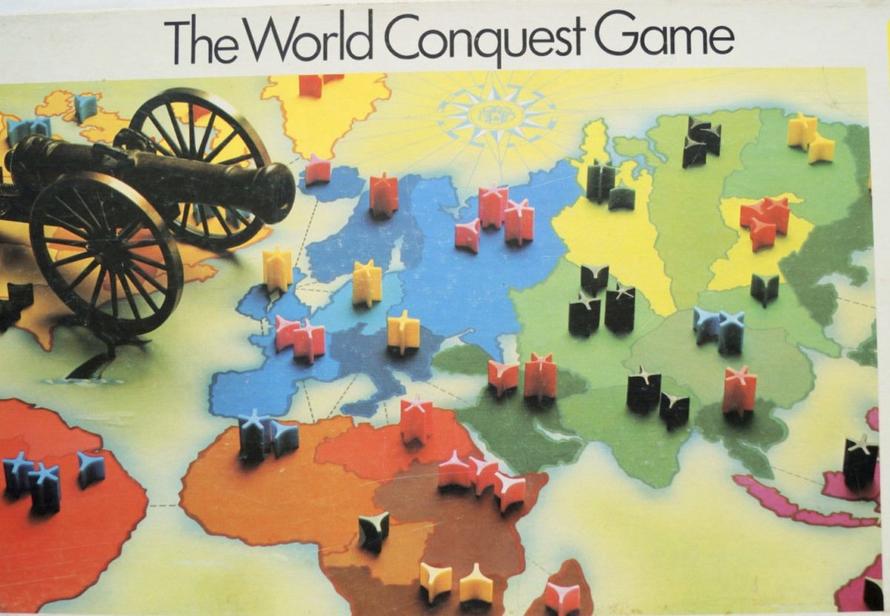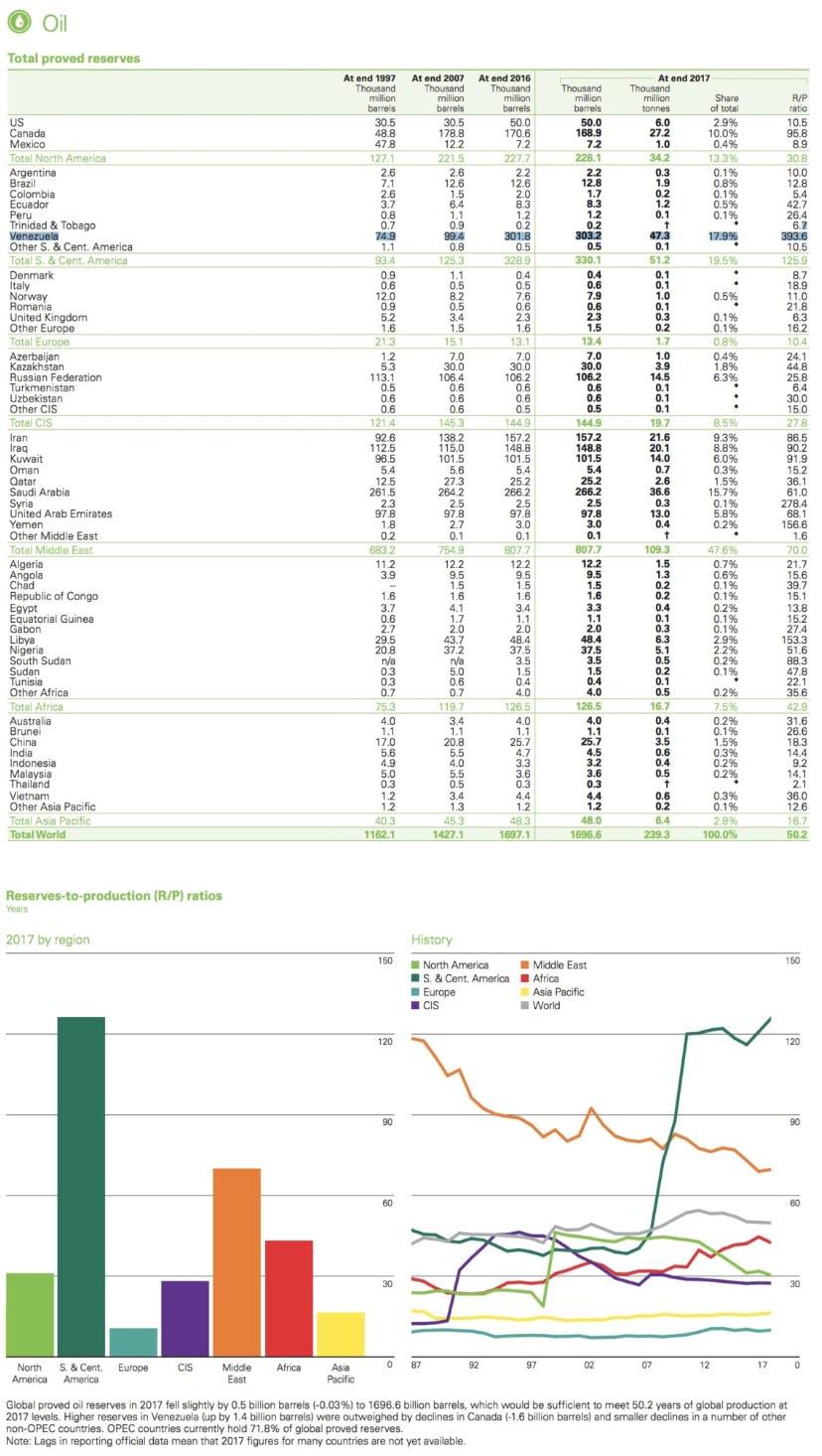Authored by Mike Krieger via Liberty Blitzkrieg blog,
Many people are coming to quick takes on yesterday’s extraordinary decision by the U.S. government to recognize an unelected opposition leader as interim President of Venezuela based on their view of Maduro and his government. Similar to the emotional responses to those first clips of the Covington students and Nathan Phillips, such superficial opinions feel good and confirm biases, but don’t tell you much about what’s really going on. From my seat, the move by the Trump administration to choose the leader of Venezuela by diktat is just straight up imperial geopolitics. Nothing more, nothing less.
A month ago, I reassessed my geopolitical assumptions in the post, Is U.S. Geopolitical Strategy Experiencing a Monumental Shift? In it, I detailed how U.S. foreign policy seemed to be shifting toward a focus on containing China, which would lead to a far more serious confrontation between the world’s number one and number two economies.
I’ve now seen enough to seriously consider that we may be entering an entirely new geopolitical environment dominated by vastly increased tensions between the U.S. and China. If so, it will likely last a lot longer than you think as leaders in both China in the U.S. will be looking for a scapegoat as their crony, financialized economies struggle under unpayable debt and unimaginable levels of corruption.
With the attempt to push Russia back in Syria a clear failure, the neocons in Trump’s administration quickly got to work on their next scheme. Enter Venezuela.
Venezuela. Wow this story really has it all.
Bad guy with a mustache, oil reserves, a Russian ally, gold.
Just another act in the desperate attempt to preserve a uni-polar empire.— Michael Krieger (@LibertyBlitz) January 24, 2019
I’ll get to all that in a bit, but first let’s discuss how this relates to the increased tensions with China. As reported by The Guardian earlier today:
Venezuela has been one of Beijing’s closest allies in Latin America, and the largest recipient of Chinese financing, taking as much as £38bn in loans by 2017. China is Venezuela’s largest creditor, prompting concerns that as Venezuela’s economy spirals, state assets could fall into Chinese hands, as was the case with Sri Lanka’s Hambantota port.
It is in Beijing’s interest to support Maduro, given that a new government could refuse to honour Venezuela’s debt obligations to China. Maduro met China’s president, Xi Jinping, last year and toured Mao Zedong’s mausoleum in Beijing, and the countries agreed on £3.8bn in loans and more than 20 bilateral agreements.
Of course, Russia is also a close ally of Maduro:
Russia’s Vladimir Putin spoke by telephone with Maduro and offered him strong support in a political crisis he said had been “provoked from abroad”, a Kremlin statement said. “Destructive interference from abroad blatantly violates basic norms of international law,” Putin was quoted as saying…
Russia’s prime minister, Dmitry Medvedev, described the US support for Guaidó as a “quasi-coup” and accused the US of hypocrisy, asking rhetorically how Americans would react if the House speaker, Nancy Pelosi, declared herself president.
Sergei Ryabkov, Russia’s deputy foreign minister, said a US military intervention in Venezuela would be catastrophic.
Russia is an important source of financial support to the Venezuelan government, providing billions of dollars in loans, some as pre-payment for future deliveries of oil. Last month Russia dispatched two nuclear-capable Tu-160 bombers to the country in a further show of support.
Once you start getting all these facts, it becomes clear the U.S. isn’t trying to help Venezuelans achieve “freedom and democracy,” but the goal is to push back against the empire’s primary geopolitical rivals who have been busy working on creating a multi-polar world order.
Let me be blunt.
If Maduro was a good client state of the U.S. instead of allied with Russia and China, not only would the U.S. government not be doing anything, it would actively be helping him.— Michael Krieger (@LibertyBlitz) January 24, 2019
The next question to ask is why does Venezuela matter to Russia, China or anyone else? Well, natural resources of course. Many of you have probably seen it thrown around that Venezuela has the largest proved oil reserves in the world, and this is indeed correct. Much of it is heavy oil, which is far more expensive and labor intensive to extract, but there’s an enormous amount of energy production potential sitting there in Venezuela.
As I was researching this piece, I turned to a data source I once poured over for hours at a time back when I was an oil analyst, the BP Statistical Review of World Energy. Here are a couple of relevant charts to see what’s at stake in Venezuela.
Then there’s the gold part of the saga, which is equally fascinating.
In case you forgot, Hugo Chavez didn’t make any friends in the empire back in 2011 when he repatriated around 160 tonnes of gold from banks in the United States and Europe. But the story doesn’t end there. As Reuters reports:
The government of Nicolas Maduro has since last year been seeking to repatriate about $550 million in gold from the Bank of England on fears it could be caught up in international sanctions on the country.
Its holdings at the bank more than doubled in December to 31 tonnes, or around $1.3 billion, after Venezuela returned funds it had borrowed from Deutsche Bank AG through a financing arrangement that uses gold as collateral, known as a swap, one of the sources said.
Venezuela last year started carrying out gold barter operations with Turkey to import food following U.S. sanctions that have made international banks reluctant to handle Venezuelan transactions.
The motivation for paying back the funds from the Deutsche swap was not immediately evident. But redeeming the swap would give Venezuela more gold for barter operations with Turkey…
Calixto Ortega, president of Venezuela’s central bank, met with Bank of England officials in December to discuss repatriating the gold but was unable to convince them, according to sources familiar with the situation.
I don’t think the U.S. takes kindly to using gold for barter, nor do I think the Bank of England is interested in giving the remaining gold back. The Venezuela affair really has it all, and as usual, the real story is far more interesting and complicated that the garbage fed to you by mass media and assorted pundits.
Come to your own conclusions about what’s going on and whether or not you approve of it, but you should always have as much background information as possible.
* * *
If you liked this article and enjoy my work, consider becoming a monthly Patron, or visit our Support Page to show your appreciation for independent content creators.
via ZeroHedge News http://bit.ly/2Mu0hck Tyler Durden

